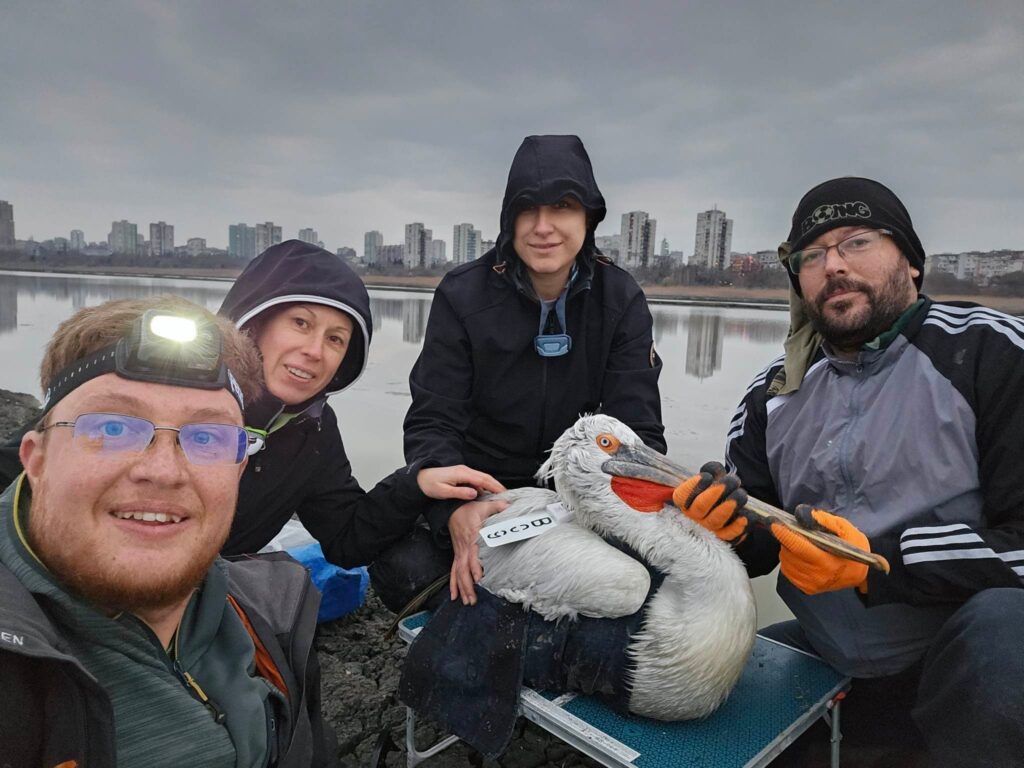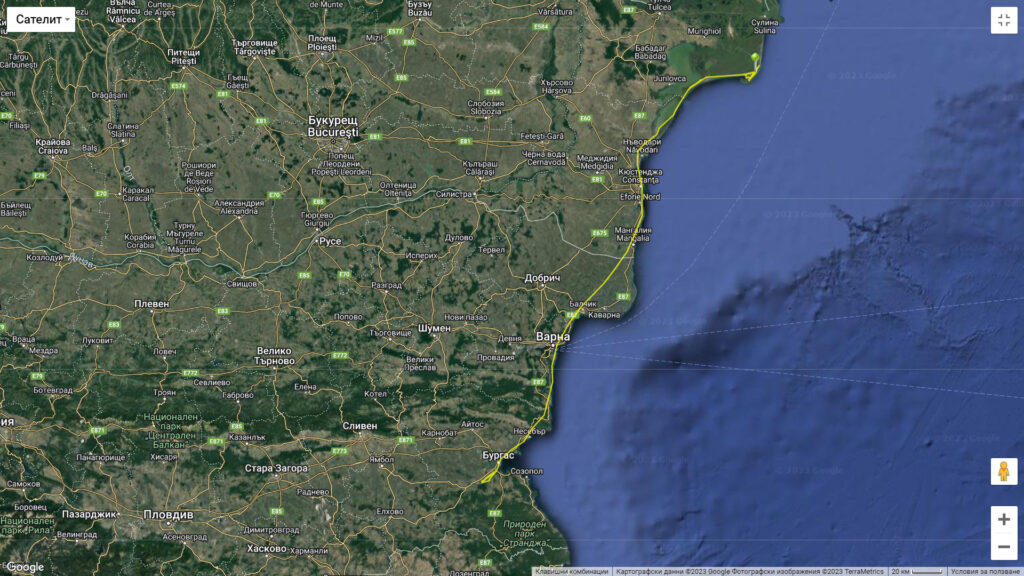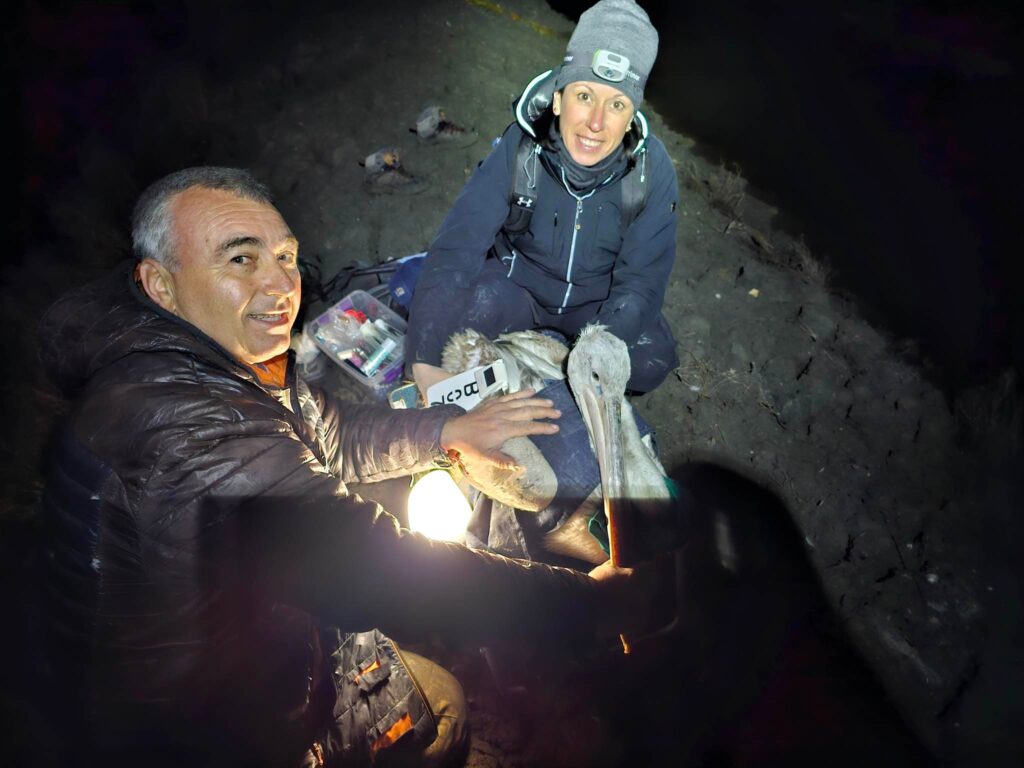In early March, a team from the Bulgarian Society for the Protection of Birds (BSPB) successfully ringed and tagged with satellite transmitters two more Dalmatian pelicans in Bulgaria. The birds were tagged in the Burgas lakes area. This brings the total number of pelicans tagged this season in the country to four.

The tagging of the Dalmatian pelicans is also successful in Greece. Placing transmitters on Dalmatian pelicans is a major advance in the study of this rare species. Using ring data and satellite telemetry, scientists can track the birds’ movements and locate places where pelicans feed, roost, rest, and nest. Additionally, valuable data on speed, altitude, and flight patterns are obtained in real-time. Thanks to the transmitters, scientists will learn more about the ecology, movements, and threats to the species, which will help us plan and take future conservation measures to protect it.
The transmitters weigh a few grams and are placed on a special section of the pelicans’ wing where they do not cause discomfort. The tagged birds get used to the transmitters very quickly and can carry out their daily activities without any problems.

Both tagged pelicans are female. The scientists gave them the “names” Hristina and Albena to facilitate the monitoring and reporting process. Hristina is the second adult Dalmatian pelican tagged with a satellite transmitter in Bulgaria. Albena is a young, almost two-year-old bird. Immediately after the manipulation, the Dalmatian pelicans were released. After that Hristina flew to the Danube Delta region of Romania and Albena stays in the Burgas Lakes. In mid-February, two more birds, named Nasi and Desi, were tagged by the BSPB team. The last tagging brought the total number of Dalmatian pelicans with transmitters in Bulgaria to six, but unfortunately the first two birds, Maria and Kali, died.
Soon the data from the transmitters from the newly tagged pelicans will be uploaded to our website and it will be possible to track the movements of the tagged pelican almost in real-time.

The study of the species is carried out within the framework of the international initiative “Pelican Way of LIFE” funded by the LIFE Programme of the European Union and Arcadia Foundation, and with the assistance in Bulgaria of the Whitley Fund for Nature. The project is coordinated by Rewilding Europe, in partnership with the Bulgarian Society for the Protection of Birds, the Romanian Ornithological Society (SOR), the Hellenic Ornithological Society (HOS), the Persina Nature Park Directorate – Belene, Rewilding Ukraine and Rewilding Danube Delta.